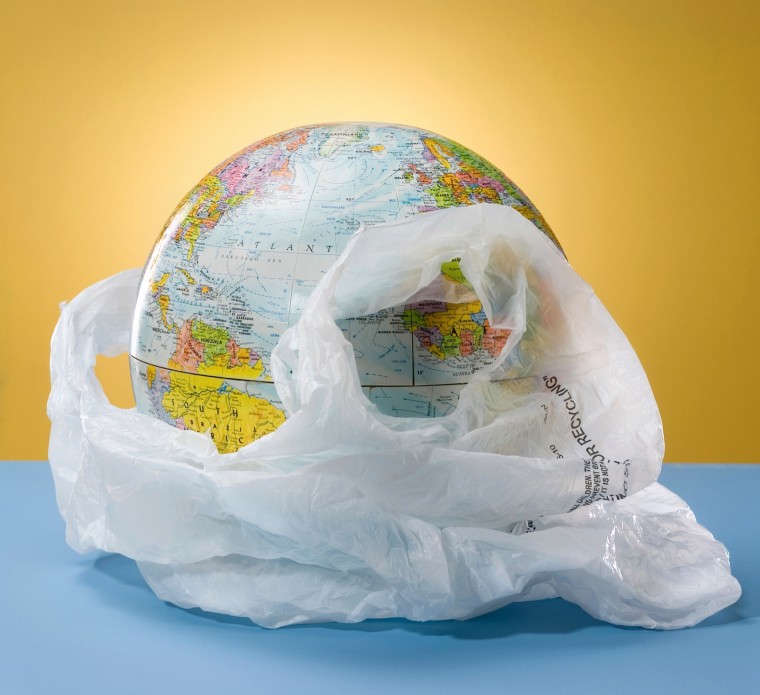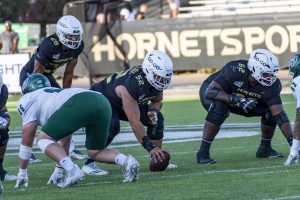Help the environment: Use reusable bags
September 21, 2010
Paper or plastic? A common question from the checkout stands of grocery stores, and one to which most students give hardly any thought.
Both options lead to a bag being used once and thrown away, causing unnecessary waste and spitting in the face of the Green movement.
There are hardly any uses for plastic bags outside of transporting groceries, crumpling them up, and throwing them away.
They often end up in gutters or on beaches adding to environmental pollution.
Three Wal-Mart stores in Citrus Heights, Folsom and Ukiah, began an experiment in October of 2009.
Instead of giving consumers free single-use bags, they only offered two types of reusable cloth bags: a small size bag for 5 cents and a larger bag for 50 cents.
The experiment began alongside proposed legislation to limit single-use bags in stores.
Assemblywoman Julia Brownley, D-Santa Monica, saw her Single-Use Bag Reduction Act defeated for the third consecutive year Sept. 1 with a vote of 21-14.
Brownley said the bill would have banned all single-use plastic bags and most other single-use bags.
“It was comprehensive, statewide. I believed it was a policy that would change behavior towards reusable bags,” Brownley said.
She said the ever-present plastic bag is not environmentally sound, with more than 19 billion plastic bags used each year worldwide.
According to Time for Change, a Swedish consulting company, for every five plastic bags, 1 kilogram (2.2 pounds) of carbon dioxide is released into the air, or just less than 9 billion pounds of carbon dioxide each year.
“The plastic bag is most ubiquitous product, used for five or 10 minutes to transport groceries, and never break down, at least in our lifetime,” Brownley said.
The bags often end up in the environment, and because they do not break down, wild animals find the bags and try to eat them, causing negative effects to the animals’ digestive system.
If the bag makes it to the ocean, chances are that currents will carry it to the Plastic Vortex, a section of the ocean between Hawaii and the mainland where trash collects &- adding to ocean pollution.
There is still hope for legislative action to combat the waste as cities have begin to enact laws within their jurisdictions to ban single-use bags, said economics professor Kristen Kiesal.
Kiesal said San Francisco’s ban on plastic bags in grocery store chains began in 2007, while a 5-cent tax on single-use bags began in Washington, D.C., on Jan. 1, 2010.
The problem with cities creating their own laws is that not all of them are banning the use of plastic bags.
This “patchwork of ordinances” means students passing through cities may find a plastic bag taxed in one city, while they must pay for a reusable bag in another, causing confusion, Brownley said.
If a standardized law is not passed, we will continue to see plastic bags in gutters and washing up on beaches.
In the end, it comes down to the consumer. With the push to become greener, shoppers are already starting to utilize reusable bags, the change in behavior Brownley wanted with the bill.
Kiesal said the big factor stopping the change is the price of the bags, be it single-use or reusable, for consumers who are used to free plastic bags.
Once you buy a bag, you will be able to use it for a long time. It is worth the effort to help the environment.
Reusable bags are sold at such stores as Costco, Sam’s Club, Trader Joe’s, Wal-Mart and more, including non-grocery stores.
Do your part to save animals and the environment, and help our planet remain eco-friendly. Instead of paper or plastic, use a reusable bag.
Cole Mayer can be reached at [email protected]
























































































































